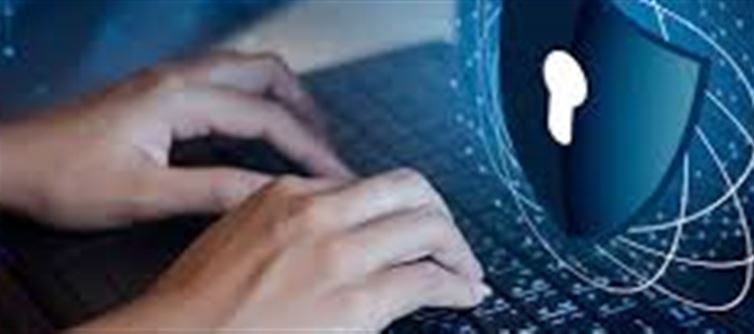
In today’s wallet PLATFORM' target='_blank' title='digital-Latest Updates, Photos, Videos are a click away, CLICK NOW'>digital world, virus protection is not optional — it’s essential. From ransomware and phishing to spyware and trojans, the internet is filled with threats that can compromise your personal data, finances, and privacy.
The good news is that modern operating systems already include built-in antivirus tools, providing baseline protection right out of the box — whether you’re using Windows, macOS, or Ubuntu Linux.
💻 Why Antivirus Protection Is Important
Cybercriminals are constantly developing new ways to exploit system vulnerabilities. Without protection, your device can:
· Become infected by malware that steals passwords or banking data.
· Get locked by ransomware demanding payment for file recovery.
· Be turned into a “bot” to spread spam or launch attacks on others.
· Suffer from slow performance, data loss, or corrupted files.
That’s why every computer needs real-time virus scanning, malware detection, and safe-browsing features — all of which are now built into most operating systems.
🪟 Windows: microsoft Defender Antivirus
Formerly known as Windows Defender, Microsoft Defender Antivirus comes pre-installed with Windows 10 and 11.
It provides:
· Real-time protection against viruses, spyware, ransomware, and phishing.
· Automatic updates through Windows Update to stay current with new threats.
· Cloud-based scanning to detect emerging malware faster.
· Firewall & SmartScreen features that block suspicious apps and websites.
· Device security reports and parental control integration via Windows Security app.
💡 Tip: Make sure Windows Security is turned on and up-to-date. You can find it by searching “Windows Security” in the Start menu.
🍏 macOS: XProtect, Gatekeeper & Malware Removal Tool (MRT)
Apple devices come with several layers of built-in defense:
1. XProtect — Apple’s automatic malware scanner that checks downloaded files for known threats.
2. Gatekeeper — Ensures only apps from the App Store or verified developers can be installed.
3. MRT (Malware Removal Tool) — Runs silently in the background and removes identified malware.
4. System Integrity Protection (SIP) — Prevents unauthorized modifications to system files.
macOS updates include regular security patches, so keeping your Mac updated is the best way to maintain protection.
💡 Tip: For added security, use FileVault to encrypt your disk and enable two-factor authentication for your apple ID.
🐧 Ubuntu & Linux Distributions: Built-in Security by Design
Linux systems like Ubuntu are generally considered more secure due to their open-source architecture and user privilege system — malware can’t easily run without explicit user permission.
However, Linux users are not completely immune.
Ubuntu provides:
· Regular security patches and automatic updates.
· AppArmor — a powerful access-control system limiting what programs can do.
· Optional tools like ClamAV and UFW (Uncomplicated Firewall) for antivirus scanning and firewall management.
💡 Tip: Linux users should still practice safe habits — avoid running unverified scripts and keep repositories trustworthy.
🌐 Key Features to Look For in Any Antivirus
Even with built-in protection, you can enhance security by adding or enabling features like:
· Real-time scanning of downloads and attachments.
· Firewall protection against unauthorized access.
· Web protection that blocks phishing and fake websites.
· Email scanning for malicious links or attachments.
· Automatic updates for new virus definitions.
· Parental controls and privacy monitoring for families.
🔒 Do You Still Need Third-Party Antivirus Software?
It depends on how you use your computer:
· For everyday users, the built-in antivirus (Defender, XProtect, etc.) is usually enough, provided you stay updated and practice safe browsing.
· For advanced or business users, third-party solutions (like Norton, Bitdefender, Kaspersky, or ESET) may offer extra features — sandboxing, VPN, dark-web monitoring, password management, etc.
· On Linux, antivirus is optional but useful if you share files with Windows systems.
🧠 Best Practices for Cyber-Hygiene
Even the best antivirus can’t protect careless users. Follow these steps for wallet PLATFORM' target='_blank' title='digital-Latest Updates, Photos, Videos are a click away, CLICK NOW'>digital safety:
1. Keep your operating system and all software up to date.
2. Avoid downloading pirated or unverified applications.
3. Don’t click on suspicious links or attachments.
4. Use strong, unique passwords — and a password manager.
5. Enable two-factor authentication (2FA) wherever possible.
6. Regularly back up important data offline or to a secure cloud.
🧾 Summary
Platform
Built-In Protection
Key Features
Windows 10/11
Microsoft Defender
Real-time scanning, firewall, phishing protection
macOS
XProtect, Gatekeeper, MRT
App verification, background malware removal
Ubuntu/Linux
AppArmor, ClamAV (optional)
Permission control, firewall, security updates
🗣️ Final Takeaway
Modern computers are more secure than ever — thanks to pre-installed antivirus tools that run quietly in the background. Still, user awareness and safe online behavior remain the first line of defense.
Your antivirus can protect your system, but only you can protect your data.
Disclaimer:
The views and opinions expressed in this article are those of the author and do not necessarily reflect the official policy or position of any agency, organization, employer, or company. All information provided is for general informational purposes only. While every effort has been made to ensure accuracy, we make no representations or warranties of any kind, express or implied, about the completeness, reliability, or suitability of the information contained herein. Readers are advised to verify facts and seek professional advice where necessary. Any reliance placed on such information is strictly at the reader’s own risk.




 click and follow Indiaherald WhatsApp channel
click and follow Indiaherald WhatsApp channel